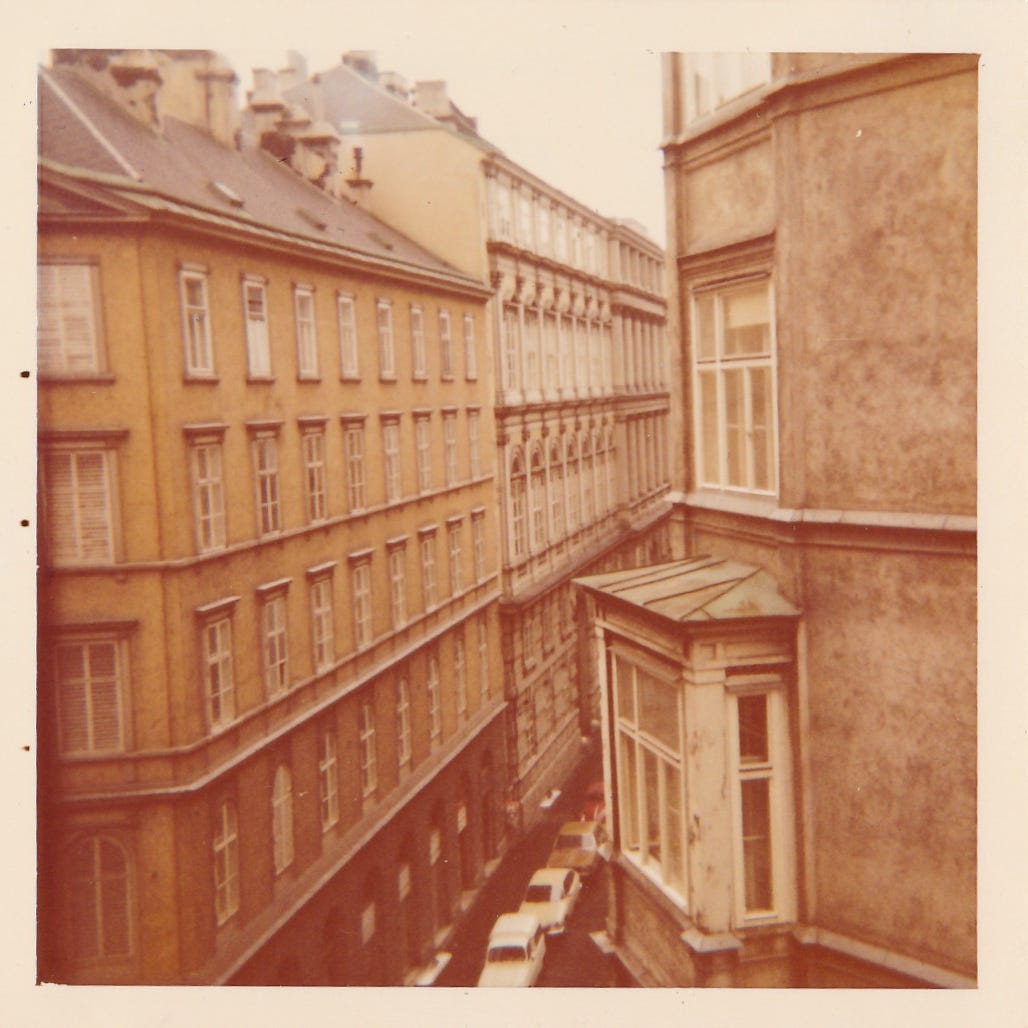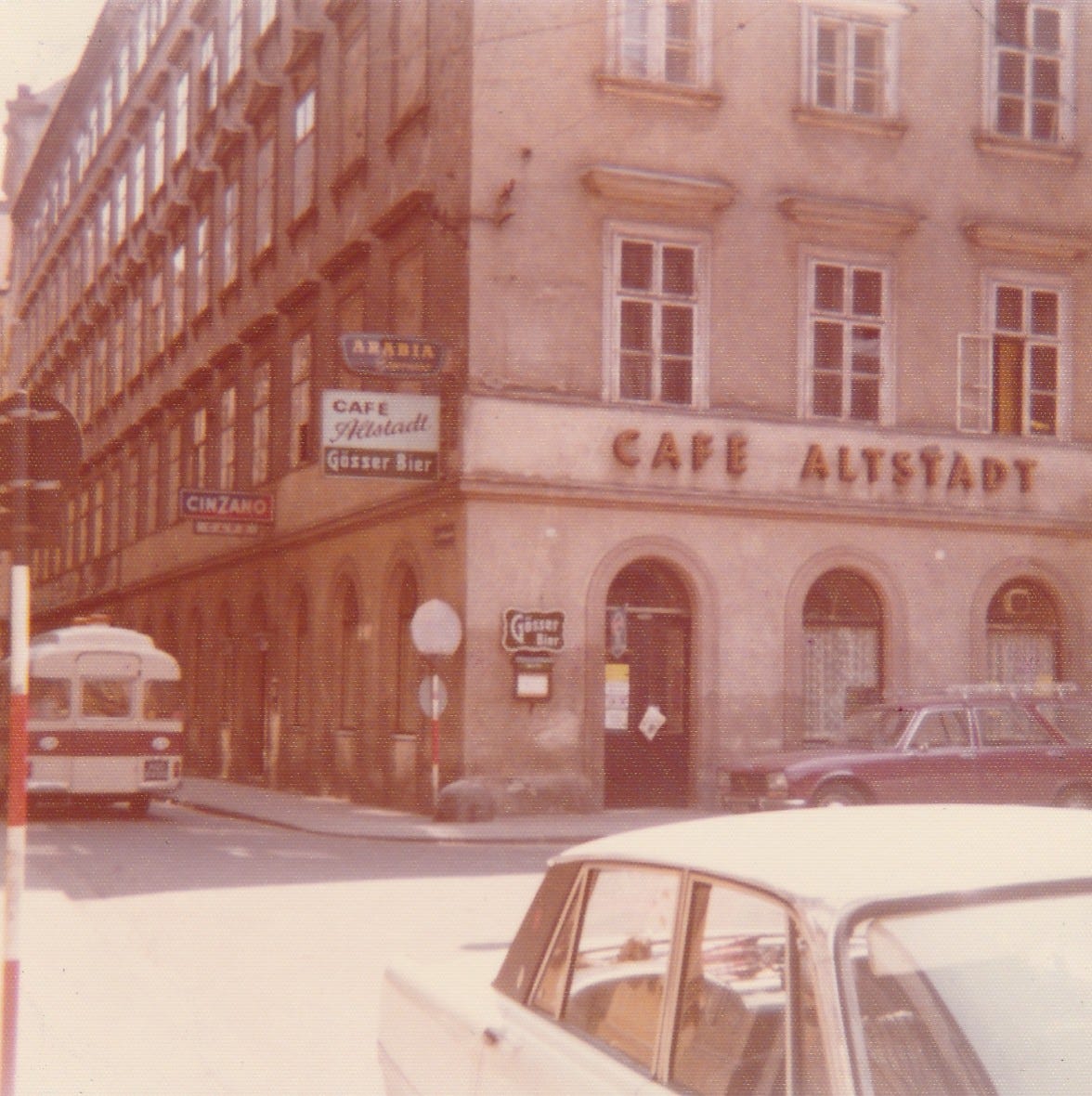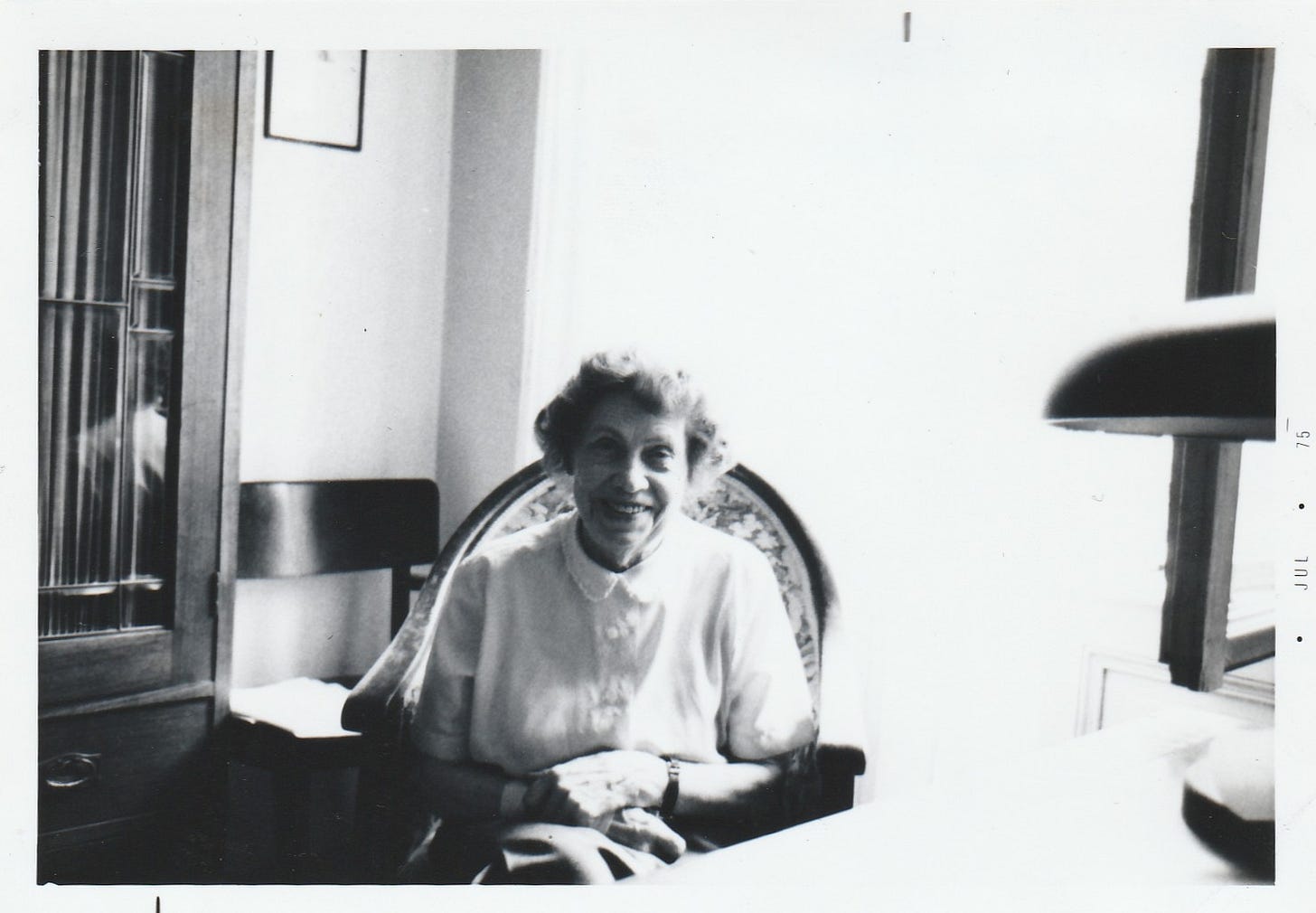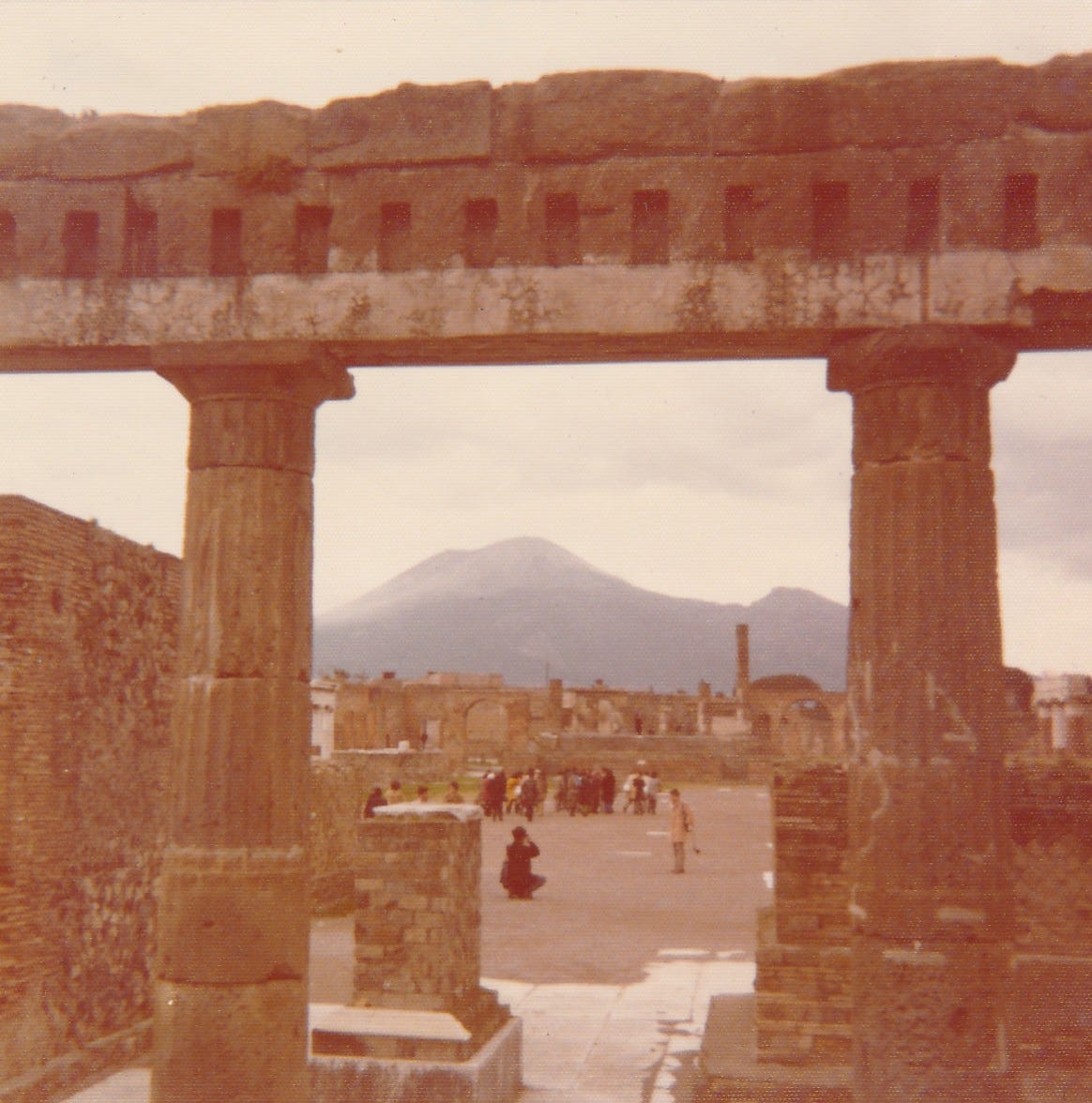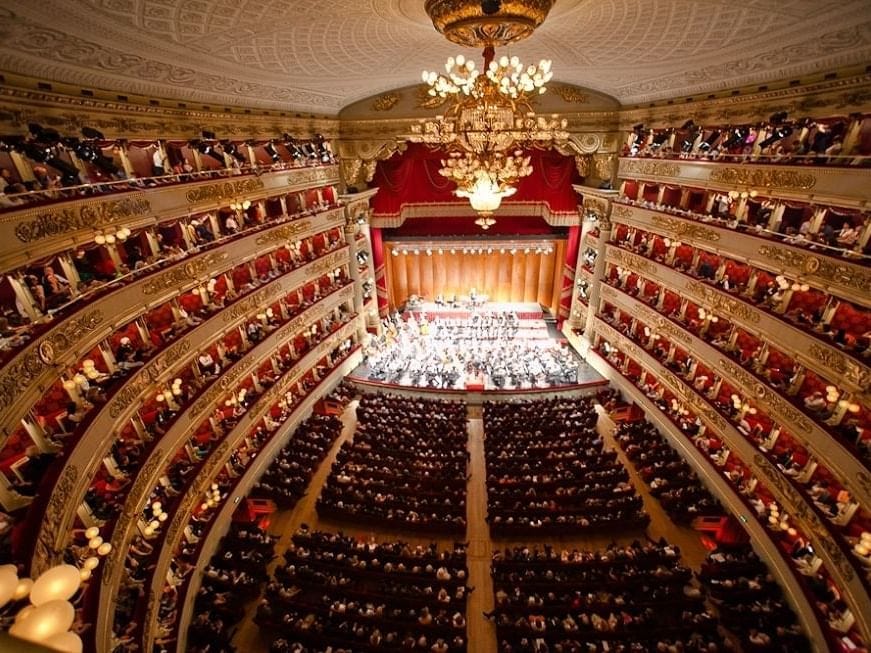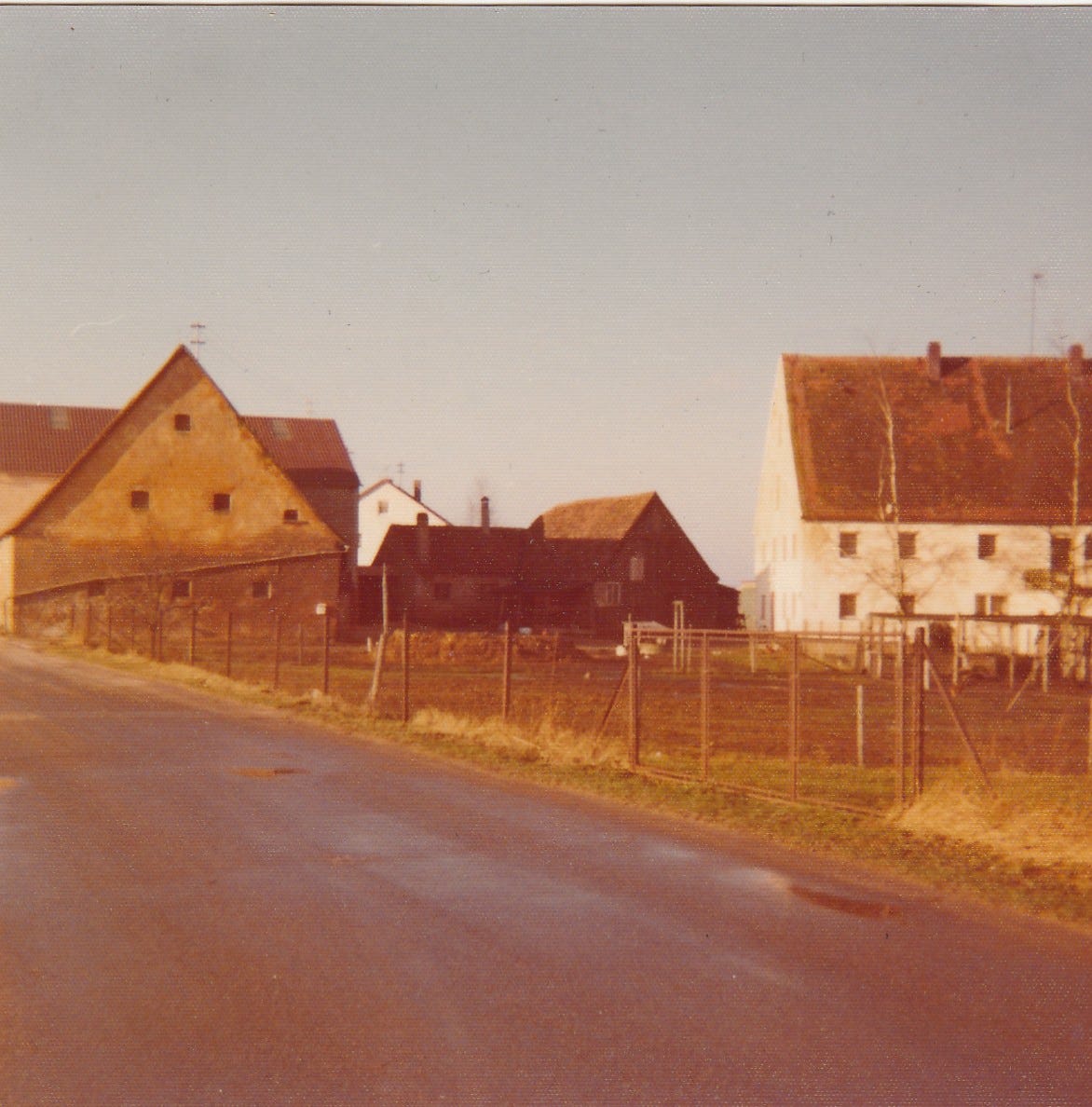This past week’s intensifying attacks on Harvard University and their foreign students by the Trump administration sent me on a trek down memory lane. No, I did not attend Harvard – didn’t even apply because I didn’t want to go there. I was a foreign student – an American studying in another country for my junior year in college. I’d had two years of the language of the country but had never been to Europe. I wanted to pursue my academic studies, but I also wanted to enter life’s classroom, experience other ways of life, culture, and customs, and find out where I fit into the world as an American.
My sophomore year in college: I was studying German and music, about to declare my music major, and I requested information about the Institute for European Studies (IES), My college’s international study program partner. I studied the information and thought carefully about what my academic goals were and what I’d want to accomplish studying in a foreign country. IES offered programs in several different European cities, and the one that fit my needs and goals was in Vienna, Austria. So, I applied to the IES program in Vienna to study German and music for a full academic year – Vienna, one of the music capitals of Europe. IES accepted me. At the end of August that year, I flew to Austria with a full planeload of other students on the same program. My first trip to Europe.
I threw myself into living in Vienna, my German classes, my music studies and piano lessons, and exploring the city. My Hausfrau (landlady) spoke English but not well, and I was quite happy when she told me that she would help me with my German. We established an evening routine of German conversation for an hour or so after she’d watched the news on her TV. She always spoke German with me, and demanded I do the same with her. Looking back, I can see the impact it had on my developing fluency, forcing me to think in German, to perfect the sounds of the language to improve my pronunciation. I still made mistakes, but it gave me confidence to use my German all the time.
As a music and piano student, I attended concerts in the concert houses and at the opera house as well as at the University of Vienna’s Academy of Music. I studied 20th Century Music with a 20th century composer who opened my eyes and ears to all kinds of music that made me think, and I discovered new music that I liked. I studied art history and went to art museums. I studied Eastern European history and visited the border between Austria and Hungary where I saw border guards with machine guns in wooden towers (I wonder if they are still there today). Almost thirty years after World War II, it was still possible to see the effects of that catastrophe on the streets – men without arms or legs – or marks on buildings – marked that the building had been searched. My Hausfrau told me about her experience during World War II, how she and her husband survived in the country, but when they returned to Vienna, they found the Soviet Red Army looting apartments and arresting people. The Russians arrested her husband and imprisoned him until the Soviets to left Austria in 1952. Her husband returned a broken man.
The stories. That was the best part of living and traveling in Europe – meeting people, talking with them, listening to their stories. The better my German became, the more comfortable I was talking and listening. I became an observer, a witness, a quiet representative of my culture and country.
Sundays became story days. A group of us began exploring the restaurant scene. We preferred restaurants that served family-style cooking or that had family-style seating rather than a more formal establishment (and usually more expensive). We met all kinds of people that way. Our small group would be seated with another small group at one of the large, rectangular tables, and introductions followed all around. The Austrians were usually delighted to meet American students who wanted to speak German and to eat more local cuisine. Our favorite restaurant was in Vienna’s 10th District and was called Karl’s. It specialized in game – venison, boar, etc. – along with regular Austrian fare. We met Austrians from all walks of life there – doctors, lawyers, truck drivers, Schwechat Airport’s meteorologist, nurses, teachers, etc., shared a meal, listened to their stories and told them ours.
For our month-long Christmas break, an American college friend studying in Paris came to Vienna, and the two of us left for an exploration of Italy. We noticed American tourists who behaved like bulls, arrogant and demanding, simply because they were American. Those tourists weren’t interested in making human connections, only in being served. Neither of us wanted to be recognized as being American, so we decided to speak German in public. She was an art history major so I knew I’d learn a lot about art in Italy. After a few days in Venice, we spent a lovely week in Florence, including Christmas day, where we ran into an American father and son exploring as we were and maintaining a low profile, an American expat woman from Venice who asked if we were going to Venice – she needed someone to check on her home and her cats. My friend developed a scratchy throat in Florence and I asked the pension owners for salt for her to use to gargle. Happily for us, the owners understood my Spanish which was close to their Italian. They were kind and asked the next day if my friend was OK. We took day trips to Pisa and Siena, then took the train south to Naples.
My friend wanted to see Pompeii. Neither of us liked Naples, but Pompeii was fascinating and eerie. We both eyed Vesuvius throughout the day. From Naples, we headed north on New Year’s Eve to Milan. We met Augusto in Milan, an Italian student who asked if we would speak English with him so he could practice. My friend spent most of the afternoon talking with him while I nursed several painful blisters on my feet. That evening, Augusto wanted to know our plans – standing room tickets at La Scala. He offered to help us, and we invited him to join us. He bought seats for us in the top balcony and refused our offers to repay him. Because we’d let him control our English conversation of general topics like life in America, current events, and common interests, we did not learn much about him beyond being a university student. I will never forget him and his generosity.
We left Italy on a miserable overnight train in a crowded, hot compartment with a young mother and screaming baby. In Basel the next morning, we boarded another train for Cologne, West Germany. From there, after a day exploring the city (Cologne will always smell like chocolate in my memory because we found a chocolate factory there scenting the air), my friend returned to Paris, and I went to Munich where I changed trains to go out into the country to visit relatives of a family friend.
After a two-kilometer walk in a snow-rain mix through a forest, I arrived at a village. Unsure if it was the village I wanted, I knocked on the door of the first house. A woman stuck her head out of an upstairs window and asked what I wanted (in German, of course). I replied in German that I was visiting Herr Bothmann and was this the right village. She and a neighbor took me to Herr Bothmann’s house – a renovated mill on a stream. The Bothmanns had only that day received my postcard from Italy letting them know when I’d arrive. I’d mailed it weeks earlier!
When I look back on those five days with the Bothmanns, I realize that I was like a diplomat, sharing America with these people who generously shared their West Germany, specifically Bavaria, with me. I was struck by the flat landscape of farm fields and dense forests, the cold, and the brilliant blue sky when I walked with Herr Bothmann through the village. One day, we encountered a wedding party in a large horse-drawn cart preceded by musicians playing a march. We spent a day at the nearby medieval town still encircled by its wall. I visited a relative in the hospital – he’d had a heart attack – so that I could report back to his sister who lived in my hometown. Herr Bothmann talked about his World War II – he’d been a partisan fighter against the Nazis which surprised me. I hadn’t known that there were German partisans. It must have been extremely dangerous for him. I told him about my father who’d been a US Army medic in the Pacific theater of the war, and my cousin who’d driven a tank in France a week after D-Day. I loved being out in the country and seeing a rural side of European life.
When I left the Bothmanns, I took the train back to Munich where I visited college friends studying at the university for a few days. My friends lived near Olympic Village (a haunting and haunted place barely two and a half years after the Munich Olympics in 1972) and they took me to see it as well as the center of the city. On the train back to Vienna, I met an American “Bull” with his wife and teen daughter, who oozed contempt for European train conductors because he’d handed the first train conductor all of his train tickets for their month in Europe and the conductor had punched the lot so they no longer could use them. I wondered if he would have done that in America. When the conductor came through for our tickets, he acted like there was something wrong with the Bull’s tickets. The conductor spoke only German with them and they didn’t understand. I suspected he was up to no good. I asked the conductor, in German, what the problem was. The conductor started like I’d poked him and snapped at me, “No problem.” An hour later he returned with an older conductor and they asked me for my documents. This confirmed for me that I’d stopped something bad the younger conductor had planned to do to the Bull like tell him he needed to pay more or something. My documents were all in order, of course.
Living and travelling in a foreign country opens the minds of those who are ready to meet the people where they are and find common ground. Whether an American in a foreign country, or a foreigner in America, whether students or tourists, young or old, they will have experiences, make friends, that will provide valuable knowledge, memories, and the important realization that the world is full of people like them.



